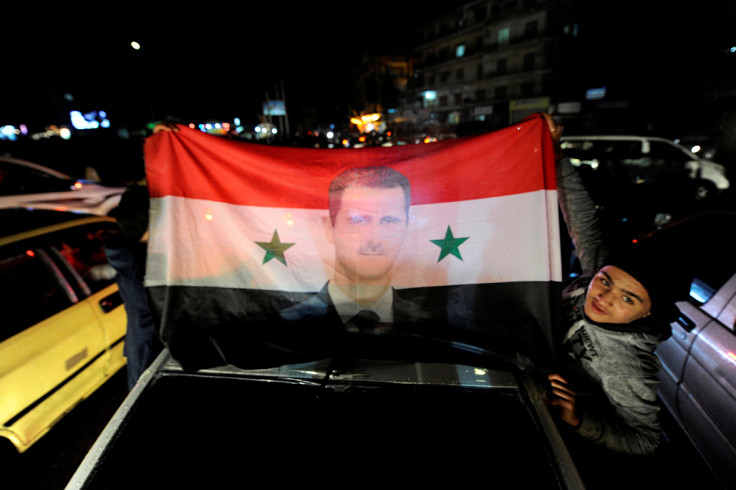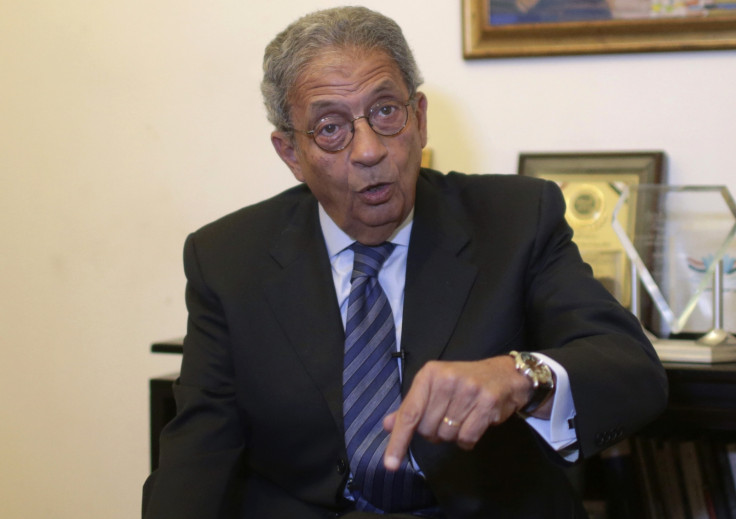Aleppo: Assad has won a battle not the war says former Arab League chief Amr Moussa
Moussa says that Saudi Arabia and Egypt should play a bigger role in ending the Syrian war

It is easy to forget, amid the woeful global inaction to end the bloodshed in Syria, that it was the Arab League that launched one of the earliest efforts to prevent the Syrian revolution spiralling into all-out civil war. As far back as 2011, the 22-nation bloc had posted observers in Syria and urged Bashar al-Assad to stand down.
Amr Moussa had already given up his seat as general secretary of the Arab League by the time the Syria conflict began. He had returned to his native Egypt after the revolution that ousted Hosni Mubarak. Although he was an early favourite in the 2012 elections, Moussa ended up coming in fifth place with just 11% of the vote.
But Moussa headed the League for a decade, taking over just three months before the 9/11 attacks in 2001 and leading the bloc of 22 disparate Arab states through the US-led invasion of Iraq and its aftermath, right up until the beginning of the Arab Spring at the end of 2010. Just like Syria, the Iraq war divided the Arab nations, with the Gulf States supporting the overthrow of Saddam Hussein but the Palestinians and Syrians resolutely opposed.
The Syrian conflict has similarly divided the Arab world. Syria and Saudi Arabia were both founding members of the League in 1945, but Riyadh today has actively supported and armed rebels trying to overthrow the Assad regime in Damascus. Algeria, Lebanon and Iraq are opposed to regime change in Syria, while Qatar and Saudi Arabia have actively funded various anti-Assad rebel movements.
But Moussa believes that despite the divisions, the Arab powers need to be more involved in ending the war in Syria. Speaking to IBTimes UK from Abu Dhabi, where he is attending the Arab Thought Foundation Fikr15 conference, he said that Saudi Arabia and Egypt had been largely excluded from "back room talks" to secure peace in Syria instead of acting as a "nucleus" around which the various factions could unite.
He said that the fact that Saudi Arabia has actively backed the rebels should not preclude the country from being involved in a peace process that includes Assad, even as the Syrian leader seems poised to take back Aleppo with Russian and Iranian backing. "There are other powers that are working for one side and against another side. This is not only a phenomenon that affects Saudi Arabia," he said.
But despite Assad's gains in Aleppo, Moussa said it was too early to say if his forces would be victorious in Syria. Asked whether he thought the Arab League – which suspended Syria in January 2012 – could ever accept Assad as leader in a Syrian peace settlement, he said: "The issue of Syria has not yet reached a point where we can put that question of [whether] Assad stays or Assad leaves," he said.

He said that the fact that the Syrian war has been left to non-Arab powers such as the US, Iran, Turkey and Russia has only worsened the situation in the country. If Arab nations had been more closely involved, Moussa said, the conflict could be resolved. "The Arab situation [has been] ignored," he said.
Moussa was the first League official to visit Gaza after the election of Hamas in 2006 and proposed a peace plan for the Israeli-Palestine conflict in 2002, which Israel rejected. Ten years on, Moussa still sees the absence of a Palestinian state as a critical factor in the chaos currently embroiling the Arab world: "The Palestinian question continues to be part and parcel of the difficulties we face. It is integral to all of these problems," he said.
But those problems at the end of 2016 are significant. Saudi Arabia remains embroiled in an ugly conflict in Yemen, Libya on the verge of becoming a failed state, Islamic State (Isis) in control of swathes of Syria and Iraq, Egypt facing political and economic turmoil. The Arab League was designed to prevent the Arab world turning on itself – and in that, it seems to have failed.
"I agree with you that it is a real mess," said Moussa. "We have made a lot of mistakes, but at the same time we are not the only ones to do so." As for whether Donald Trump, the US president-elect, will make this situation better or worse, Moussa is reserving judgement. "The Americans are saying they give him 100 days – we will give him the same."
© Copyright IBTimes 2025. All rights reserved.






















